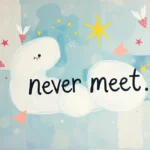
Have you ever woken up from a dream that left you questioning its meaning? The strange characters, the surreal landscapes, and the emotions that linger upon waking can be both intriguing and perplexing. Dreams often feel like a cryptic language, whispering secrets from our subconscious that we can’t quite decipher. What if I told you that understanding these nocturnal narratives could illuminate your waking life?
Dreams are not just random thoughts scattering through our minds as we sleep; they are profound reflections of our inner worlds. By unraveling the symbolism and experiences contained within our dreams, we can gain insights into our fears, desires, and personal growth. So let’s embark on this journey together, exploring the rich tapestry of dreams while shedding light on their hidden meanings.
The Dream Weaver: Threads of Symbolism
Dreams are woven from symbols that carry rich meanings and interpretations. One of the most fascinating aspects of dream analysis is how certain symbols resonate across different cultures and psychological frameworks. These symbols can serve as keys to unlock the doors of your subconscious.
1. Water: Whether it’s a serene lake or a raging ocean, water symbolizes emotions and the unconscious mind. In many cultures, clear water signifies clarity and peace, while murky water may represent confusion or emotional turmoil. If you find yourself swimming in deep waters, it could indicate that you are navigating your emotions or tackling a complex situation in your waking life.
2. Flight: Dreams of flying often evoke feelings of freedom and transcendence. In various cultures, flying is associated with the spirit’s liberation. However, if you dream of falling while flying, it may suggest that you feel out of control or fear losing your grasp on a situation in your life.
3. Animals: The appearance of animals in dreams can signify different aspects of your personality or emotions. For instance, a lion may represent courage and strength, while a snake could symbolize transformation or hidden fears. The context of the animal’s behavior can further refine its meaning—an aggressive bear might indicate a confrontation you need to face.
4. Houses: A house in a dream often reflects your self or your status in life. Different rooms may represent different aspects of your personality or experiences. For example, a locked attic could symbolize repressed memories or feelings, while a beautifully decorated living room might signify a welcoming aspect of your life.
5. Death: While this symbol can be alarming, dreams of death often indicate transformation rather than a literal end. Many cultures view death in dreams as a sign of change, suggesting that you may be ready to let go of old habits or relationships to make way for new opportunities.
Understanding these symbols can help you reflect on the current themes in your life, revealing what may be influencing your thoughts and actions unconsciously.
Dreamscapes: Voices from the Subconscious
Let’s delve into some common dream scenarios to better understand how our dreams reflect our daily experiences and emotions. Each scenario can serve as a mirror, reflecting your current state of being and the challenges you face.
1. The Lost Traveler: Imagine wandering through an unfamiliar city, feeling increasingly anxious as you search for a way out. This dream often signifies feelings of being lost or uncertain in waking life. Perhaps you’re faced with a decision that feels overwhelming. In this scenario, consider what aspects of your life feel directionless, and think about what steps you can take to regain your sense of purpose.
2. The Failed Exam: Picture yourself sitting in a classroom, staring blankly at a test you’re unprepared for. This dream could indicate feelings of inadequacy or performance anxiety. Whether it’s a job interview or a personal goal, you might be grappling with self-doubt. Recognizing this fear can be the first step toward addressing it, whether through preparation or self-compassion.
3. Being Chased: In this scenario, you find yourself running from a faceless entity, heart racing and breathless. This dream often represents a situation or emotion you’re trying to escape. You may be avoiding a confrontation or feeling pressured by external expectations. Instead of running, consider facing whatever it is that looms over you; confronting your fears can often lead to liberation.
4. Reuniting with a Lost Friend: You dream of a long-lost friend, sharing laughter and memories. Such dreams often evoke feelings of nostalgia and can signify a desire for connection or unresolved issues from the past. Reflect on what this friendship meant to you and whether it is time to reconnect with that part of yourself or even reach out to old friends.
5. The House of Mirrors: You walk into a room filled with mirrors, each reflecting a different version of yourself. This dream can symbolize the multiplicity of your identity and the different roles you play in life. It may prompt you to explore your self-image and how you perceive your strengths and weaknesses. Are you embracing all facets of who you are?
These scenarios illustrate how our dreams can serve as a lens through which we can better understand our emotions and experiences. Each dream reflects an aspect of our waking life, inviting us to engage with our inner selves.
The Awakening: Embracing Personal Growth
As we uncover the hidden messages within our dreams, we also open the door to personal growth. The journey of dream interpretation is not just about deciphering symbols or scenarios; it’s about integrating insights into our daily lives.
1. Cultivating Self-Awareness: Begin by journaling your dreams each morning. This practice enhances your ability to recognize patterns and recurring symbols in your dreams, leading to deeper insights. Self-awareness is the first step toward transformation.
2. Emotional Processing: Use your dreams as a tool for emotional processing. If you wake up feeling anxious after a dream, take time to explore those feelings. Ask yourself what unresolved issues might be surfacing and how you can address them in your waking life.
3. Setting Intentions: Dreams can offer guidance on your goals and desires. Set intentions before sleep, asking your subconscious mind for clarity on a particular issue. You might be surprised by the insights that emerge in your dreams.
4. Seeking Connection: Share your dreams with trusted friends or family. Discussing dreams can lead to new perspectives and deeper connections. You may discover that your dreams resonate with others, offering shared experiences and support.
5. Embracing Change: Finally, don’t shy away from change. Just as dreams often symbolize transformation, so too does life. Embrace opportunities for growth and be willing to let go of what no longer serves you.
By actively engaging with your dreams and the wisdom they impart, you can cultivate a more profound understanding of yourself and your path in life.
In conclusion, dreams are not merely whimsical narratives that unfold in the quiet of night; they are powerful reflections of our inner worlds, waiting to be understood. By embracing the symbolism, analyzing our experiences, and inviting personal growth, we can unlock the secrets that dreams hold. So the next time you find yourself lost in a dreamscape, remember: you hold the key to your own understanding.
Reflect on this: What if your dreams are simply your mind’s way of guiding you toward a more authentic version of yourself? Embrace the journey of interpretation and let your dreams illuminate your path.







